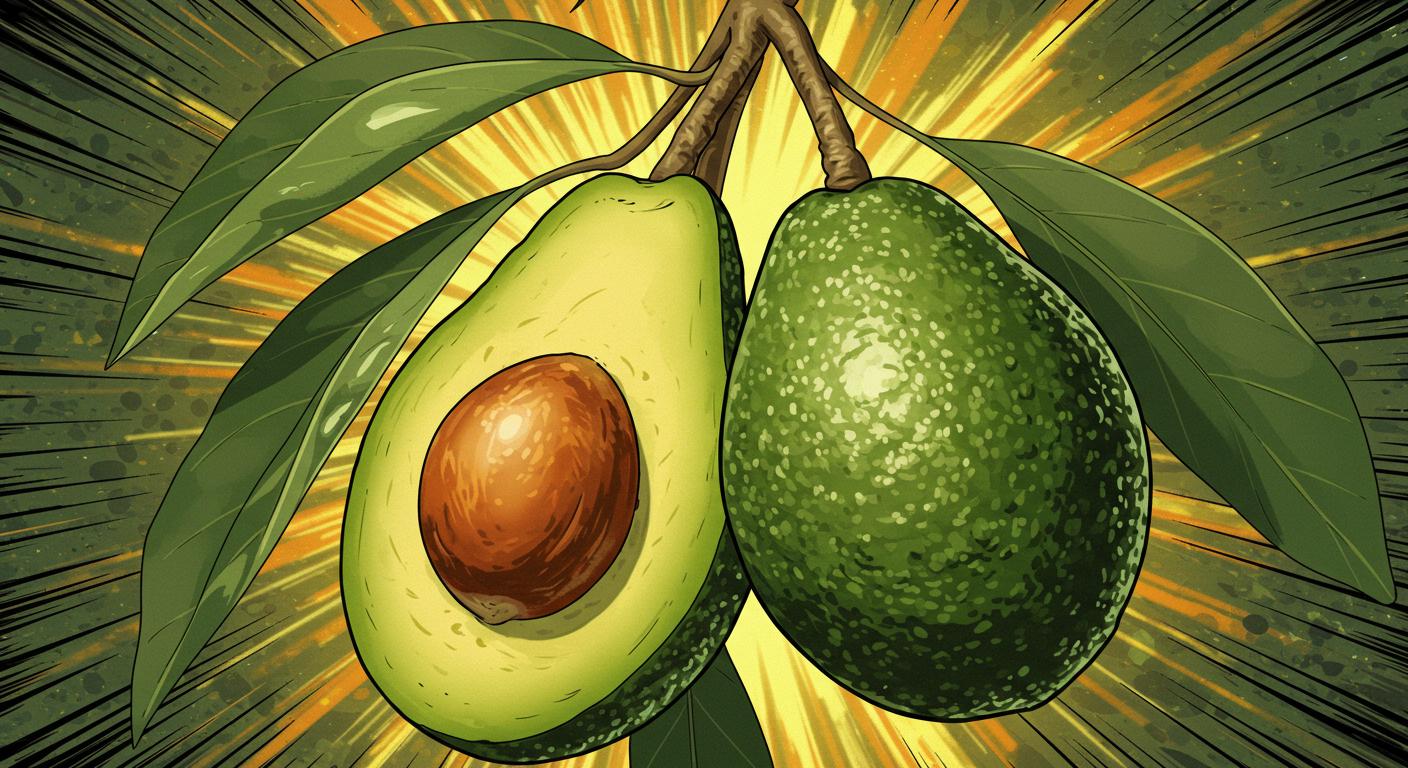Sometimes, the world hands you a story that basically writes itself. I can’t say I often ponder the deeper etymology of my breakfast (though I do spend more time than most in the back alleys of language), but every now and then a revelation comes along that forces you to question the entire premise of brunch. The avocado, that deified darling of the wellness set, is apparently—well, there’s really no polite way to put this—named after a pair of testicles. Yes, really.
Etymology With Extra Pulp
It turns out that our humble avocado owes both its popularity and its eyebrow-raising moniker to the ingenuity of Nahuatl-speaking Aztecs in Mexico and Central America, sometime around 500 BC. While documenting the fruit’s history, The Merge traces the name straight to the word āhuacatl, which in Nahuatl carries a double meaning: both “avocado” and “testicle.” There’s a certain logic to the designation if you consider the evidence—fruit that hangs in pairs from trees, vaguely oval in shape, and with a somewhat, well, organic texture. The resemblance was apparently obvious enough that calling the fruit anything else might have felt like missing the point entirely.
As The Merge highlights, the association didn’t end with naming. Avocados also earned a reputation as a fertility aid among the Aztecs—part practical joke, part ancient wellness trend—though modern science would likely suggest sticking to guacamole for flavor, not for any amorous side effects.
The journey of the word between continents explains how we dodged a more explicit menu item. Once Spanish conquerors arrived and began sifting through local language and produce alike, the term āhuacatl morphed into the softer-sounding aguacate. As the article details, the testicular connotation dropped away in the process, much like the Nahuatl tomatl became tomate (tomato) in Spanish. By the time avocados landed in U.S. orchards in the 1800s and later took over toast everywhere, shoppers were safely insulated from any accidental anatomy lesson.
“Testicle Sauce” and Other Dinner Table Fears
There’s an enduring myth that guacamole means “testicle sauce,” a claim that seems almost tailor-made for alarming brunch guests. However, The Merge, drawing on insights from Mesoamerican language specialist Frances Karttunen, confirms this is more fiction than fact. While āhuacatl brings the avocado, mōlli simply means “sauce,” making the pairing nothing but mashed avocado—culinarily, if not comically, innocent. Dr. Karttunen points out that while contemporary Nahua might get a kick out of the visual joke, the idea of āhuacamōlli as anything other than avocado mash is for laughs, not everyday use.
Earlier in the report, it’s mentioned that these linguistic quirks have a way of outlasting their original context. Something about a fruit, a tree, and centuries of giggles is oddly comforting—proof that people have always enjoyed finding the funny bone in the natural world.
Reflections While Pitting
Digging into the history behind our favorite green fruit, we’re left with one of those delightful etymological quirks: a word that carries a surprising past, even as it sits innocuously on the brunch table. There’s a kind of everyday poetry in the thought that your guacamole dip is rooted—quite literally—in ancient, cheeky observation.
Does the story change how anyone thinks about avocado toast? Probably not, unless you’re in the mood to liven up a slow breakfast. Still, it’s these details—the mingling of the anatomical and the appetizing, the accidental jokes of language-making—that make the world of weird trivia so irresistible.
So the next time you find yourself eyeing an avocado, waiting for just the right moment when it’s neither rock-hard nor overripe, a small, secret smile might be in order. Isn’t it remarkable, after all, that something as ordinary as guacamole comes with an etymology you can’t quite unsee? Or is that just another serving of food for thought?







